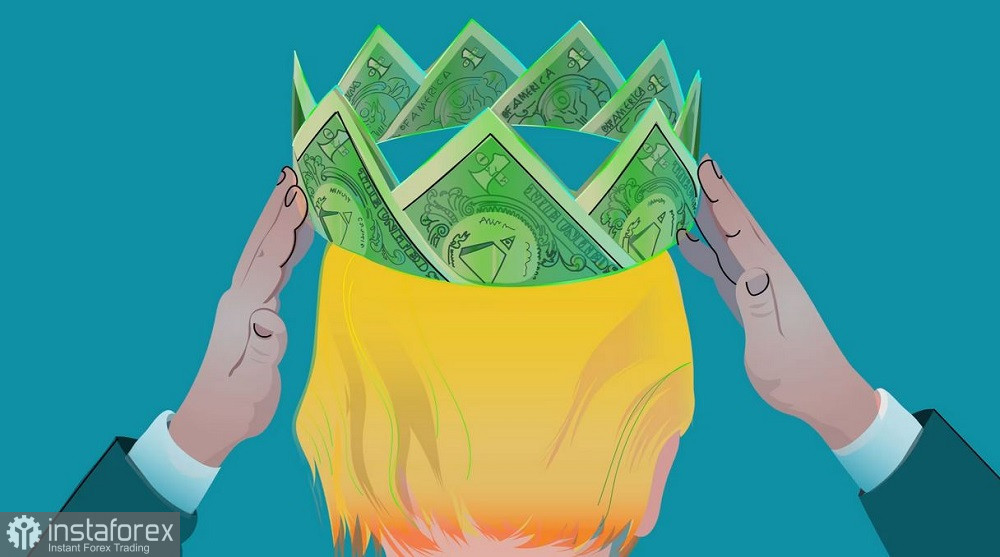The economic calendar for the upcoming week is not packed with significant events. Key reports for EUR/USD (Nonfarm Payrolls, CPI, PPI) were released in the first half of January, while the year's first European Central Bank and Federal Reserve meetings are scheduled for the end of the month. This creates a kind of "off-season" to borrow a term from sports.
However, the upcoming week is arguably the month's most important, possibly the year (or the next four years). On Monday, January 20, Donald Trump will officially assume office as the 47th President of the United States. Given his combative rhetoric toward China, the European Union, and neighboring countries, the financial world is bracing for his initial actions. Meanwhile, rumors abound that Trump's policies may not be as aggressive as his rhetoric suggests. For instance, last week, Bloomberg reported a resonant insider claim that Trump's team is considering a gradual approach to raising tariffs. According to sources, this strategy is "aimed at strengthening negotiating leverage and preventing an inflation spike."

Additionally, it has been announced that Han Zheng, Vice Premier of China, will attend Donald Trump's inauguration. This marks the first time a high-ranking Chinese official has been present at a U.S. presidential inauguration. Furthermore, The Wall Street Journal reports that Trump plans to visit China "early in his presidency," potentially within the first 100 days.
If Donald Trump, already in office, takes a softer stance toward China and the European Union compared to his previously declared intentions, the U.S. dollar may come under significant pressure. This is because the market's appetite for risk could increase substantially. On the other hand, if Trump rejects these "soft" and liberal proposals from his team and opts for a hardline approach, the outcome may differ. There are indications this might occur; for example, Trump recently publicly refuted a Washington Post article that claimed his tariff plans would only target critical imports, labeling the article as "fake."
Meanwhile, German Economy Minister Robert Habeck stated yesterday that Germany will become the "primary European target of U.S. trade tariffs once Trump assumes office."
In other words, uncertainty remains, and volatility for EUR/USD is inevitable, regardless of Trump's stance. According to the general opinion of experts, the new US president will sign presidential executive orders (Executive Order), which are issued bypassing Congress, in the first days of his tenure. Deutsche Welle reports that a stack of these orders, addressing both domestic and international policies, will be signed on January 20. These initial steps will be symbolic and demonstrative, inevitably sparking volatility in EUR/USD. The question is: in favor of buyers or sellers?
The upcoming week is focused on Trump's inauguration and initial decisions. However, the economic calendar is not empty.
For instance, the ZEW economic sentiment indices will be published on Tuesday. Preliminary forecasts suggest a decline. Specifically, the German economic sentiment index is expected to drop to 15.2 points in January (from 15.7 in December). The overall European sentiment index is also projected to fall to 16.6, down from 17.0 the previous month.
On Wednesday, January 22, ECB President Christine Lagarde is scheduled to speak. In a recent interview, she mentioned that the ECB is getting closer to its goal of reducing inflation to the medium-term target of 2%. She also indicated that further rate cuts might be considered if key indicators continue to show progress toward this target. If Lagarde reiterates this message, the euro could face additional pressure, exacerbating its downward trend.
This situation is especially important if the January PMI indices fall short of expectations. Projections indicate that Germany's manufacturing PMI will show only a minimal increase, rising from 42.5 to 42.9, but it will still remain in contraction territory. Meanwhile, the services sector PMI is expected to hold steady at its December level of 51.1, which indicates expansion. Similar trends are anticipated for the Eurozone-wide PMI indices. A disappointing release could put significant pressure on the euro.
It's important to note that the "quiet period" will begin next week—a 10-day interval before the Fed meeting during which policymakers refrain from public commentary.
As a result, a relatively uneventful economic calendar, combined with this quiet period, places Donald Trump as the dominant newsmaker of the week. The 47th U.S. President has the potential to either weaken the U.S. dollar if his initial policies are softer than expected or trigger a rally in the dollar if he starts implementing his campaign promises consistently.
On the D1 timeframe, EUR/USD is currently trading between the middle and lower lines of the Bollinger Bands indicator and is positioned below all lines of the Ichimoku indicator, signaling a bearish "Parade of Lines" signal. The initial target for decline is set at 1.0230 (the lower Bollinger Band on the daily chart). The main target is 1.0150 (the lower Bollinger Band on the weekly chart). Long positions should only be considered if the pair consolidates—rather than merely testing—above the resistance level of 1.0360, which is the middle Bollinger Band that coincides with the Kijun-sen line on the D1 chart.





















